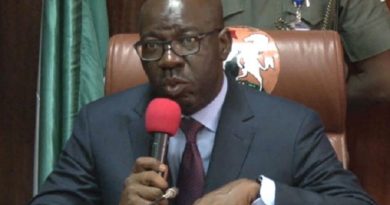What You Need To Know About The Infectious Disease Bill And How It Will Affect You
What you need to know about the Infectious Disease Bill and how it will affect you, your business your freedom, and your family is ex rayed in this write-up.
The latest controversial bill in the 9th National Assembly on the pretext of proffering measures to curtail the spread of infectious diseases once again shows the level at which the “power-drunk disease” has eaten deep the fabric of Nigerian democratic ethos.
On April 28, the Speaker of the House of Representatives, Femi Gbajabiamila, and two of his colleagues Pascal Obi and Tanko Sununu, sponsored a bill seeking to empower the federal government to convert any property in the country, including private properties, to isolation centres.
The bill, titled, ‘Control of Infectious Diseases Bill 2020’, hurriedly passed the first and second readings on the same day thereby creating great suspicion among Nigerians.
The sponsors of the bill claimed the archaic nature of the Quarantine Act and the incapacitation of the Nigerian Centre for Disease Control (NCDC) in the war against COVID-19 as the reason for the proposal, especially, putting into consideration the number of patients that have absconded from the isolation centres across the country.
To put it mildly, some of the clauses contained in the bill are unfit for a democratic country like Nigeria. Part of the clauses that seem to be draconian in nature is sections 15, 79, 13, among others which negates some of the fundamental human rights stipulated in the 1999 Constitution of the Federal Republic of Nigeria.
Likewise, the Section 79 (3) which prescribes an N500,000 fine and six-month jail term for persons who violate the quarantine restriction or refuse to take vaccinations in case of an outbreak or a suspected outbreak of an infectious disease in such as the ravaging COVID-19 without considering the circumstances that might have propelled the person’s behaviour.
In a democratic society like Nigeria where the plight of the people ought to be the driving force behind the action and inaction of the lawmakers, this kind of bill ought not to have come to the floor of the National Assembly not to talk of escaping first and second readings.
Though part of the responsibilities of the National Assembly is to make laws that will engender healthy living, looking at the high level of poverty in the land, the first issue that ought to be at the front burner of the National Assembly is “Anti-Poverty Bill” because most of the people that violate the government’s directive did that while scrambling for daily bread.
A telling reference is recent comments attributed to some of the COVID-19 patients that left their isolation centres to protest the ill-treatment received from the Gombe State government.
Needless to state that most civil servants obeyed the lockdown and stay home order by the government because they know that at the end of the month their salary will be paid. If not, the story would have been different.
Femi Oluwasanmi, wrote from Ibafo, Ogun State.




